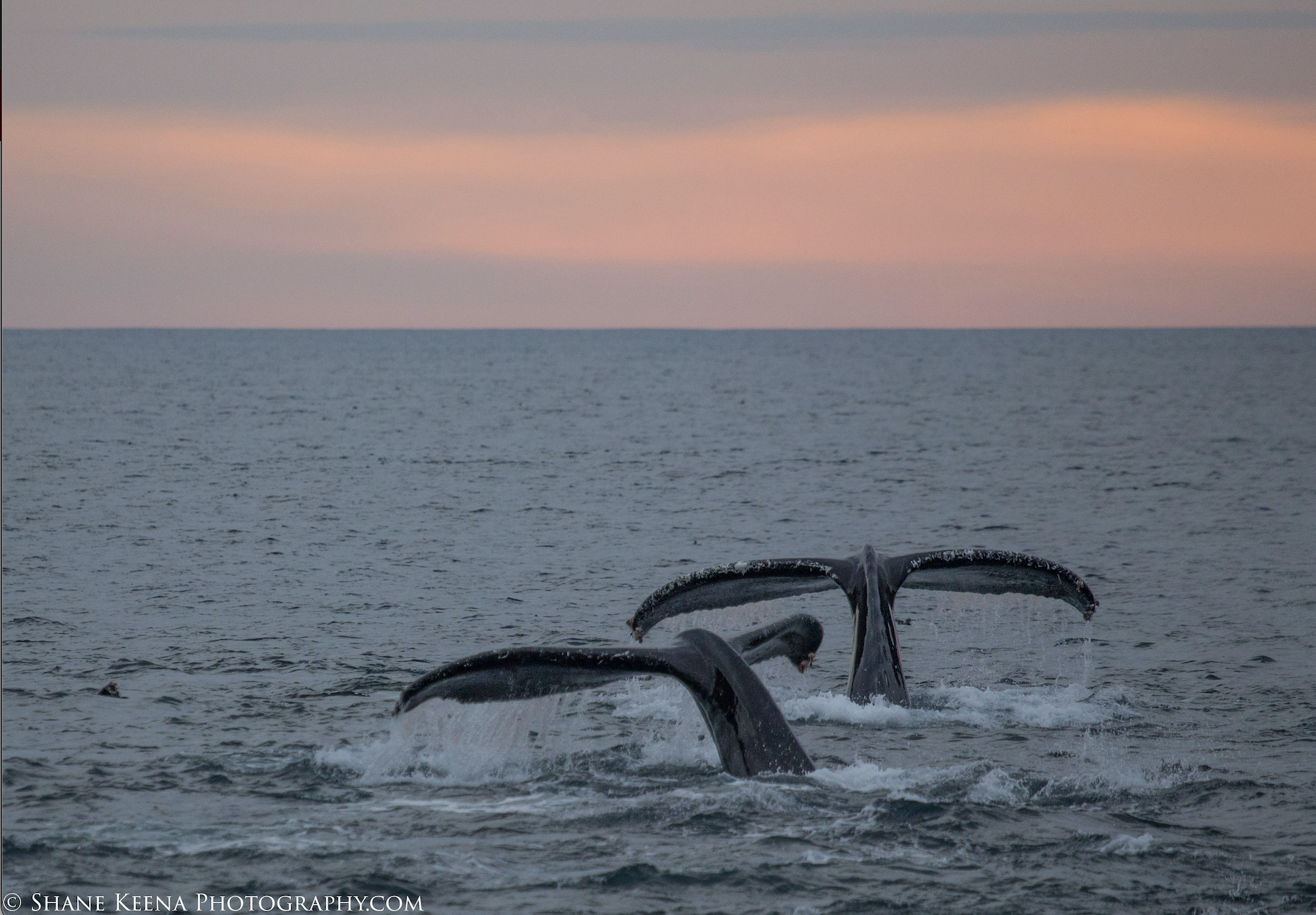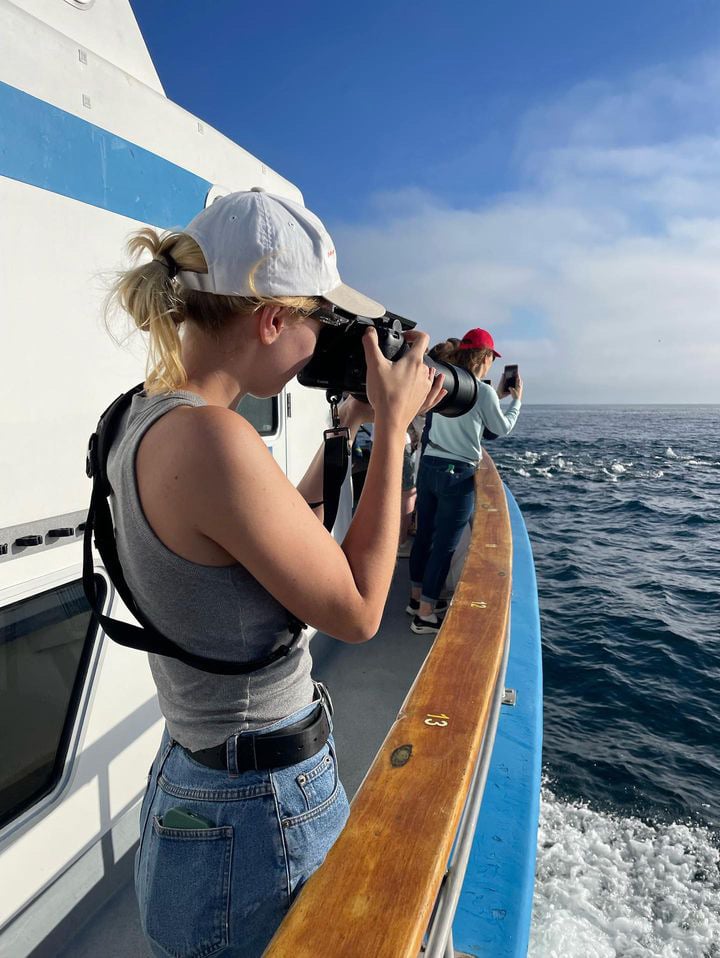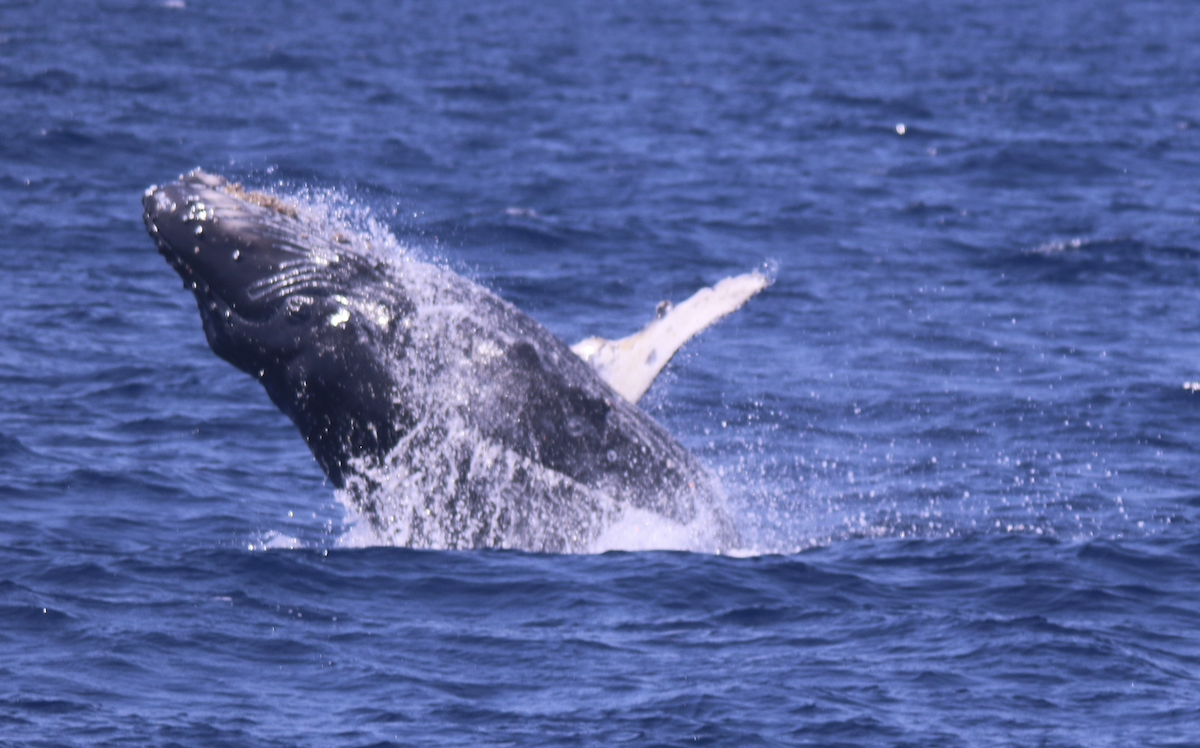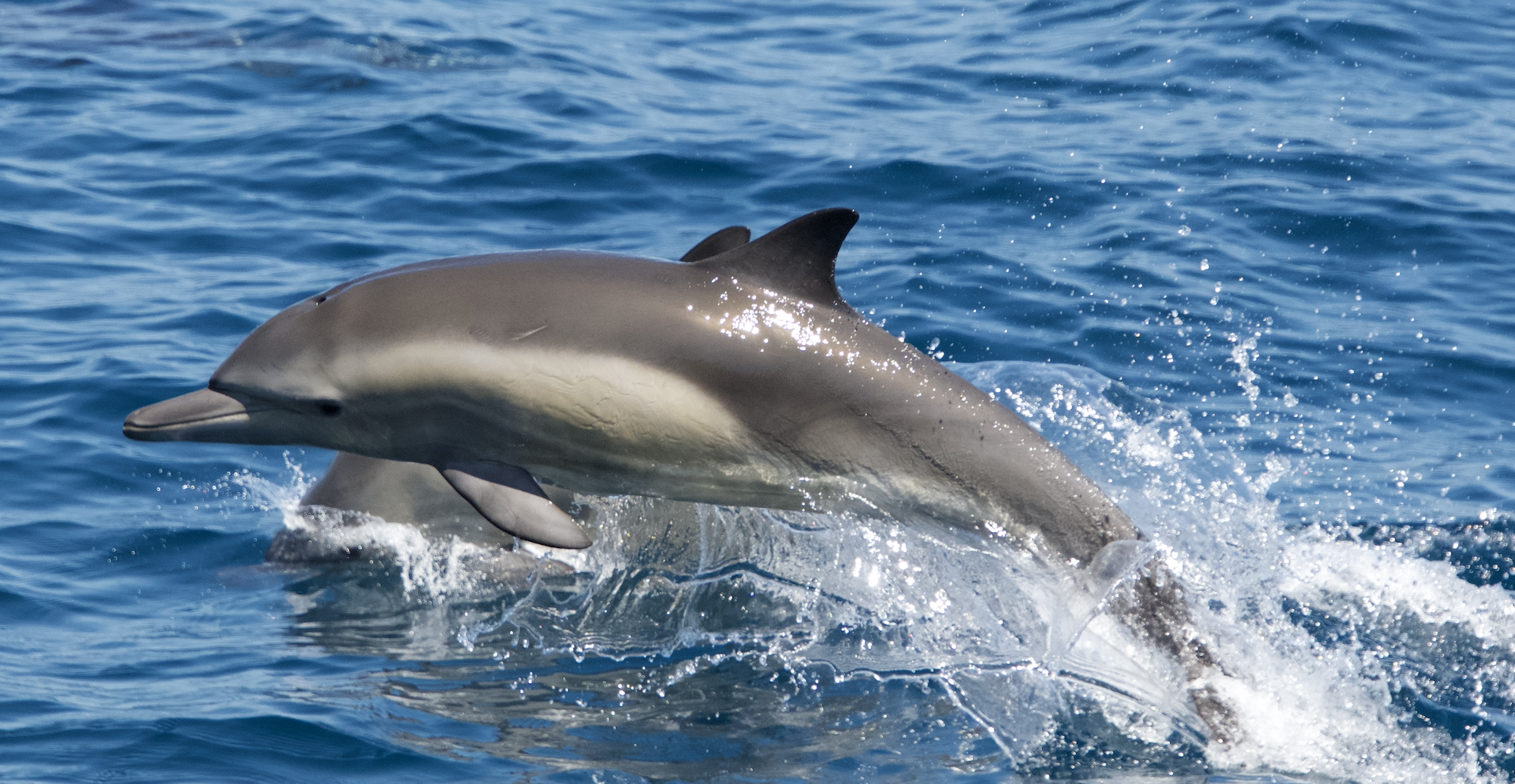Katharina Napoletano '24


Off the coasts of Southern California, a diverse profusion of aquatic life ranging from anemones to whales can be found. With global sea temperatures on the rise, increased pollution, and habitat and species loss, understanding how to protect California’s marine wildlife and ecosystem has become more important now than ever.
For more than a decade, Biology Professor Lei Lani Stelle has been leading research and data collection on the human impacts on marine mammals in Southern California. Stelle believes this research and long-term monitoring is essential to understanding how marine mammal populations fluctuate in our rapidly changing environment. By using Geographic Information System (GIS), Stelle’s team can predict where and when to find specific species and identify conditions necessary for a habitat they can thrive in.

Students at the University of Redlands have the opportunity to participate in and contribute to Stelle’s research each summer through the Student Science Research program. This 10-week program enables students the opportunity to work on a research project while working alongside a U of R professor. Students are involved in all aspects of research: data collection, scientific writing, and even give a presentation on their work at the annual poster symposium.
“Students are able to focus full time on research and learn first-hand the challenges and rewards of doing scientific resources” Stelle explained. “The funding allows them to commit to this work without any other distractions, which is a rare opportunity. Many are considering a career as a researcher, so it's a great opportunity to determine if it's the best path for them. Some students have continued this path and others have gone on to other jobs including education, medicine, vet programs, etc. but all gained an appreciation for the value of science and the process of discovery.”

Lucy Stiff ‘24, an environmental science major and human-animal studies, spatial studies, and women, gender, and sexuality studies minor, is participating in this year’s Student Science Research program with Stelle. She pursued this research opportunity because of both professional and personal goals to help conserve wildlife and their habitats.
“While completing my undergraduate degree I want to experience as many different opportunities in this field as possible, one of which is Marine Biology,” Lucy stated. “I have always admired Dr. Stelle's work, from leading trips to Palau to mentoring students year-round on her projects involving microplastics, sea lion behavior, and human disturbances on marine mammals. Her project gave me the opportunity to not only learn from an amazing mentor, and continue my passion for conserving wildlife, but helped to develop skills in data collection and spatial analysis.”
On campus Lucy and Grace Vogt ‘23, another student participating in the research program, help organize data from previous years and identifies different species using two software programs: Flukebook–identifying Bottlenose Dolphins–and Happy Whale–identifying Humpback Whales. Blue Whales can be identified manually, given there are fewer and only travel to Southern California in the summer.
Stelle’s team conduct surveys with the support of Dana Wharf Whale Watching from Dana Point two to three times a week. On the two-hour trips, the team collects data on weather conditions, species spotted, animal behavior, and boat activity using ArcGIS Field Maps. They also take photos to help them with their work back on the U of R campus. After, the team travels to Vista Point in Dana Point to investigate the response of sea lions to boat traffic using a spotting scope from the shore.
Lucy advises, “Anyone who is considering being a part of the Student Science Research Program should keep in mind that it is a lot of hard work and long hours, but it is extremely worth it. Whether you're in Chemistry, Biology, Environmental Science, or any other field, talk to the different professors who are taking on students each summer and see if anything is a good fit.”

Alex Munoz ‘23, a biology major and human-animal studies minor, participated in the Student Science Research program last year with Stelle. His research focused on how the usage of boats impacted the behavior or migration pattern of marine mammals.
“Animals are something I've been interested in learning more about throughout my whole life,” Alex expressed, “so I was eager to take the opportunity to research them out in the wild, especially large marine mammals like whales. It was so fun and exciting to be able to go out with a whale-watching company multiple times per week during my summer research to conduct surveys on what species are out there.”
“Plus, the program allowed me to get a feel for what research would be like as a career. It allowed me to see what it would be like to collect and analyze data, and it also allowed me to gain valuable experience for any sort of career in the biology field.”
During his program, Alex was amazed by the diversity of animals found off the coast of Southern California and was able to identify twelve different species of marine wildlife, including whales, dolphins and sea lions. “Being able to see such cool animals in the wild engaging in interesting behavior, such as jumping out of the water and playing with each other, is an incredible sight. It is never a guarantee to see any particular species on a specific trip whenever we go out, but that makes it all the more worthwhile when we do see them. It is not the same as seeing animals in a video and seeing them in the wild!”
Experiences such as these offered at the U of R provide not only an opportunity to broaden one’s horizons and offer insight into future career paths but can also change one’s perspective on our interactions with all living things. For example, Stelle shared one of her favorite memories from a trip out to the coast: “We observed a blue whale mom calf pair feeding off Dana Point. They had been nearby when we noticed the mom travel further off but the calf stayed back. The calf came closer and closer to our boat, so we idled the boat so as to not cause any disturbance.”
“The calf circled around right next to our boat for over 30 minutes. We could see the mom diving about a quarter mile away the whole time. Eventually she returned, her calf joined her, and they swam away. I know it sounds like anthropomorphizing, but it seemed like she left her calf with us to babysit so she could focus on getting enough food!”
To learn more about the Student Science Research program, click this link.

